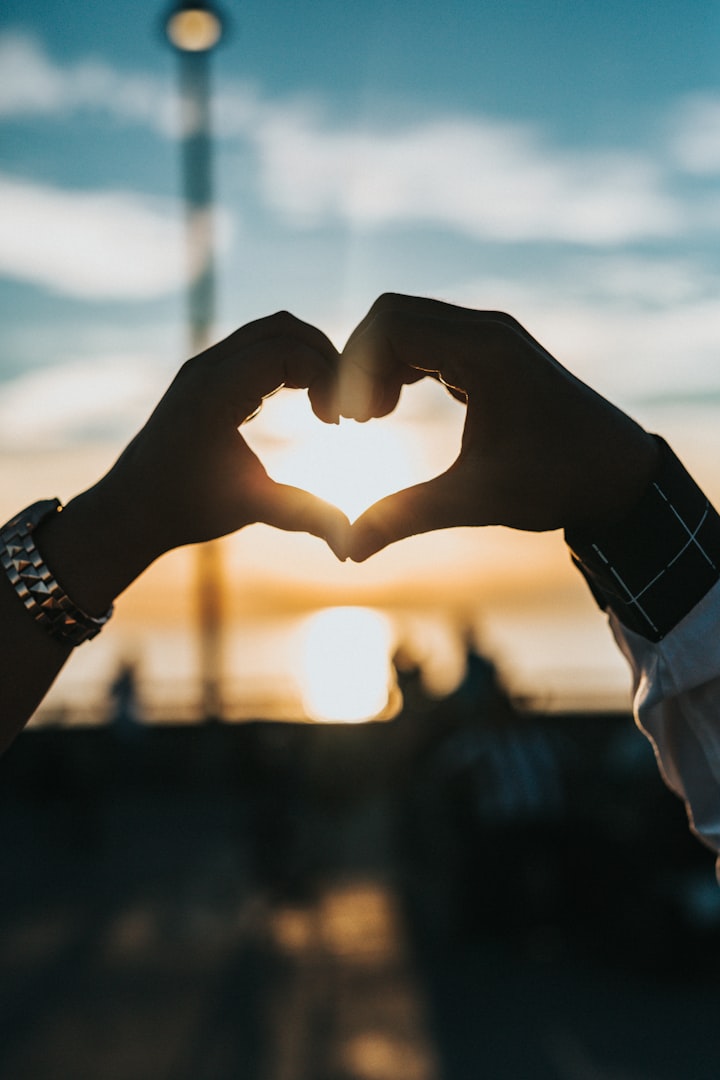If you've ever felt a connection to another person, it's likely that you are familiar with the woozy, twirling sensation it can induce.
What does that sensation even mean?
Many authors, philosophers, poets, and painters have continued to view romantic love as an enduring mystery. We are aware that we fall in love with other people, but we frequently have trouble describing exactly what that means.
It makes obvious from an evolutionary perspective that there would be a potent emotional and physical trigger that would make individuals want to mate with one another. The desire to stay around to raise children and ensure that the next generation is successful and healthy is another social benefit of having feelings for someone.
All of this is reasonable, but in today's lonelier and more obsessed with love culture, some of us seem to have lost our minds about love and feelings in general.
We all seem to experience several phases of love that take us on a crazy rollercoaster from intense attraction to enduring devotion, along with countless shades of gray in between.
The first stages of love: Complete Infatuation
A strong want to be near the person you love is frequently the first sign of love.
If they respond favorably, such as by laughing at your jokes or nodding in agreement with something you said, you'll undoubtedly treasure those moments in your memory for days.
Your feelings are suddenly like a roller coaster, carrying you along depending on the acts and attitudes of other people. You'll probably feel neglected and uncomfortable if they're withdrawn and unhappy. You lie awake wondering if they feel the same way about you, replaying a bad interaction over and over to figure out what went wrong.
However, if the obsession is intense enough, your mind eventually finds methods to rationalize each setback. A phenomenon known as "frustration attraction" occurs when obstacles to the development of a romance can intensify feelings of attraction.
Anhedonia is a condition in which you may lose interest in activities that you once found enjoyable. People who are in love frequently have interrupted and restless sleep as well as difficulty staying interested in their regular activities.
Our romantic desire is essentially fueled by the dopamine rush that occurs during love. If we don't get it, we frequently lapse into a listless state of despair and uncertainty. We desire the joyful reward of the other person's love and attention.
We eventually advance to the next stage of love, if we are fortunate enough to not be devastated by rejection at this stage.
Trust and Attachment in the Middle Stage
The next stage is when you can tell if this is a lasting love.
Your idealization of the person you love will cause you to frame your interactions with them positively throughout this stage.
It seems that perception is everything. Can you envision a future together? Maybe you can picture it, even if your projections are a little bit overly optimistic. The person we believe someone to be is sometimes what convinces us to commit to them for the long term.
Here, chemicals are at work: Oxytocin, Vasopressin, and endorphins start to significantly affect our moods. We develop an emotional bond with the other person, and as a result, our moods change along with theirs. We start to question if we might envision ourselves staying with them in the long run as their influence on our decisions grows.
Long-Term Commitment is the Third Stage.
Most people eventually desire a partner who will be their lifelong companion.
Even in this day and age, when the institution of marriage has crumbled, the majority of people still hold onto the idea of marriage and enduring love. In the United States, 61% of never-married men and women say they desire to wed.
You may still contend that marriage is a very sensible social structure.
With a partner, many activities are considerably more enjoyable and gratifying as well as monetarily practical. You can share a rental space's rent or work together to purchase a home or apartment. Additionally, feeding two people makes it much simpler to go grocery shopping and prepare meals.
At this stage of a relationship, love may or may not be intense and passionate. According to a 2011 study, certain long-term relationships display reward-related brain activity that is comparable to that of more recent partnerships.
Why we fall in love sounds like a self-evident question. Bonding with someone has social benefits and emotional advantages. But it's when we experience overwhelming sentiments of love that we start to question whether we have forgotten what love is actually all about.
After all, one of the most difficult things to do is to love oneself. That doesn’t mean we shouldn’t fall in love with other people, just that we should be more careful about how and when we do.






Comments
There are no comments for this story
Be the first to respond and start the conversation.